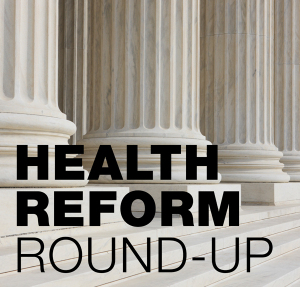by
Astrid Fiano, DOTmed News Writer | July 01, 2009

A new weekly
DOTmed feature
The House of Representatives Committee on Energy and Commerce, Health Subcommittee held three days of hearings last week on the draft proposal for comprehensive health care overhaul. Many witnesses contributed testimony to the hearings, from health care policy advocacy groups, drug and device manufacturers, government representatives including Health and Human Services Secretary Kathleen Sebelius, health care providers, and employer/employee representatives.
The hearings opened with Subcommittee Chairman Frank Pallone (D-NJ) stating, "Maintaining the status quo and allowing these problems to continue to fester is no longer an option. Nor can we simply resign ourselves to making marginal improvements as we have done in the past. The time for comprehensive reform is upon us and the discussion draft we are reviewing this week is the starting point for that debate." The witnesses included Richard Kirsh, National Campaign Manager of Health Care for America Now, who supported the draft legislation's points of keeping good employer-provided health coverage, existing employer health coverage not being more expensive or reduced in scope, and options for those without full-time jobs, self-employed, early retirees and those out of work to obtain affordable coverage without worries of preexisting conditions or gender/medical condition-based rates. David L. Shern, PhD, President and CEO of Mental Health America pointed out in his testimony that persons with mental health and substance use conditions have traditionally not been well served by the current health care system. Such persons have been subject to discriminatory limits on private insurance coverage preventing access to needed therapies, Shern said, expressing the organization's approval of the draft legislation's principle of non-discrimination and parity for behavioral health services.
On the second day, Secretary Sebelius discussed the current problems of a system with over-utilization as well as under-utilization, and inconsistent quality, stating that "Rising health costs represent the greatest threat to our long-term economic stability." Secretary Sebelius emphasized several principles necessary for reform, including affordable health care for businesses, government, and families, protecting families from bankruptcy or debt because of health care costs, ensuring affordable, quality health coverage for all Americans, and an end to barriers to coverage such as prohibitive insurance premiums for people with pre-existing medical conditions.



Ad Statistics
Times Displayed: 76923
Times Visited: 2663 Ampronix, a Top Master Distributor for Sony Medical, provides Sales, Service & Exchanges for Sony Surgical Displays, Printers, & More. Rely on Us for Expert Support Tailored to Your Needs. Email info@ampronix.com or Call 949-273-8000 for Premier Pricing.

